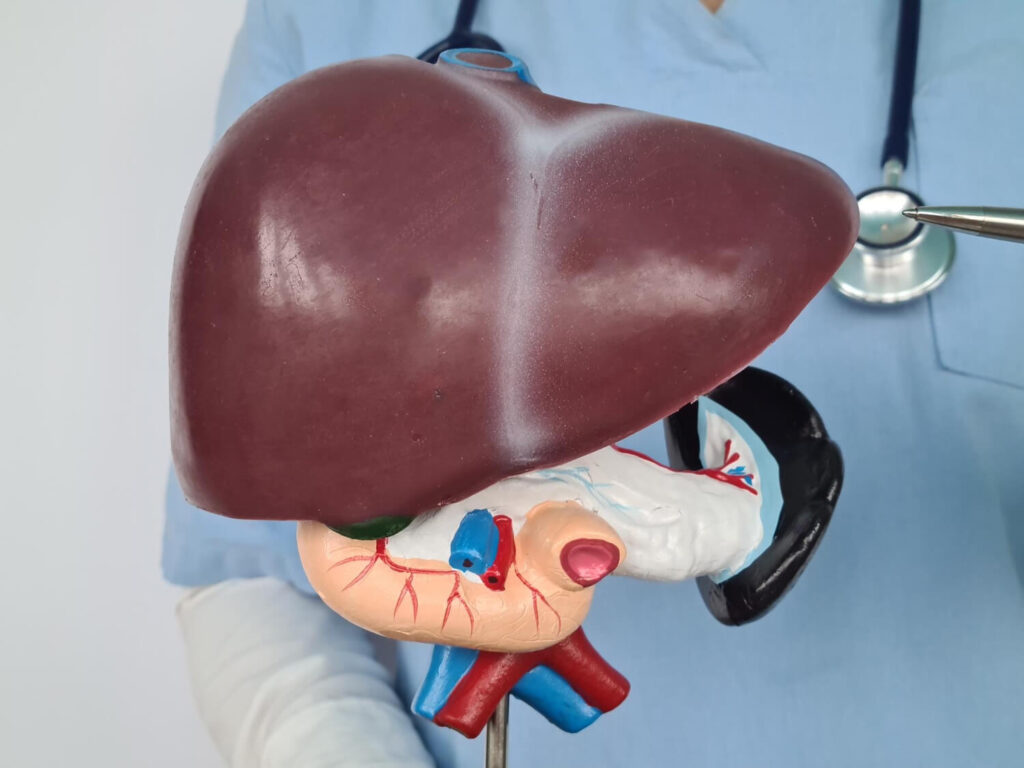Viral hepatitis is a health threat that patients must take note of. It is a health condition that can be classified to several of its variants, which are known for their unique transmission phases. Hepatitis A is the first variant, and is known for being a contagious liver disease. This condition can result in potentially serious illness. That’s why it is best to monitor the occurrence of hepatitis A symptoms to immediately address the condition before it progresses to further complications.
In this blog, we’ll cover the common hepatitis A symptoms that patients must take note of. Discover how these symptoms can impact one’s health and learn when to seek help along the process. Let’s begin!
Understanding Hepatitis A

Hepatitis A is a highly contagious liver disease caused by the hepatitis A virus. It can result in liver infection, which commonly leads to mild symptoms. Although, it can also result in severe illness, especially in older adults or individuals with pre-existing liver problems. Recognizing the distinct hepatitis A symptoms are vital for early intervention and proper management to prevent complications.
How Hepatitis A Differs from Other Types of Hepatitis
As mentioned, hepatitis A is quite different from the other types of hepatitis. Hepatitis A distinguishes itself from other types by being an acute infection caused by the Hepatitis A virus. Aside from that, it is known to be transmitted through contaminated food or water, unlike Hepatitis B and C which spread through blood or body fluids.
Furthermore, unlike chronic liver diseases caused by Hepatitis B and C, Hepatitis A usually does not result in long-term liver damage. Despite these differences, it is important to act immediately when symptoms begin to occur. Seeking help against hepatitis A is important. So, do consult a health doctor immediately.
Common Modes of Transmission

As mentioned, hepatitis A is a disease that patients develop due to a contagious virus, which is hepatitis A virus (HAV). This virus is commonly found in a fecal compound. If exposed to people, they can get infected.
There are several ways on how such a type of compound becomes ingested or exposed to non-infected people. Let’s discuss the transmission methods that can lead to cases of hepatitis a in the community.
Direct Contact
One of the possible ways of transmitting the virus to another person is through direct contact or close personal contact with an infected person. This may involve a personal contact such as sharing utensils, drinking from their water bottle, or even using the same bathroom. In this case, it is vital for individuals to be cautious and avoid using other’s items as much as possible. At the same time, practicing hygiene after bathroom usage is a must to prevent HAV contamination
Contaminated Food and Water
Consuming contaminated food or water is another common mode of hepatitis A transmission. Food prepared by someone with the hepatitis A virus can contain the virus and infect individuals who consume it. Similarly, contaminated water, especially in areas with poor sanitation or contaminated water sources, can also transmit the virus. It’s best to choose bottled water for drinking and choosing a clean restaurant when dining out,
Sexual Contact
When it comes to sexual contact, intimacy is a common ingredient, which means it can facilitate the direct spread of the virus. Engaging in sexual activities without barrier methods can increase the chances of contracting the virus. It is crucial to practice safe sex and use barrier methods such as condoms to reduce the risk of infection.
Illegal Drug Use
Engaging in illegal drug use, particularly injecting drugs, significantly increases the risk of hepatitis A transmission. Sharing needles or other drug paraphernalia can facilitate the spread of the virus. It is important to prioritize harm reduction strategies, such as using clean needles and participating in needle exchange programs, to minimize the risk of infection.

These methods are just some of the common forms of how people can get infected by the hepatitis A virus. After exposure, there can be an incubation period of 15-50 days before the hepatitis a symptoms occur.
That’s why it is best to be cautious at all times, especially when going to places where there is a high risk of hepatitis A transmission. If ever you do need to go to such a place, try to practice caution and proper hygiene. Doing so may help lessen your probability of developing the condition.
Recognizing the Symptoms of Hepatitis A
Aside from knowing how patients can casually develop hepatitis A, it is also important to familiarize some parts for a better healing process. That involves understanding the common symptoms of hepatitis A.
Let’s discover the common hepatitis A symptoms below!

Early Hepatitis A Symptoms: Early Warning Signs
Fatigue and mild fever are commonly noted as early warning signs of hepatitis A. Individuals may also experience loss of appetite and nausea during this phase. It is essential to be vigilant for these initial hepatitis A symptoms, as early detection can lead to timely intervention and better outcomes.
If you notice these signs persisting, especially in conjunction with other potential symptoms of hepatitis A, seeking medical advice promptly is recommended. Understanding and recognizing these hepatitis a symptoms can help in receiving the necessary care at the right time.
Hepatitis A Symptoms: Severity and Urgency
While these early hepatitis A symptoms provide alarming cases already, there are still some other symptoms to check out due to its inclination to unfortunate events. Here are some of the alarming symptoms that may need immediate intervention:
- severe fatigue
- persistent vomiting
- yellowing of the skin and eyes (jaundice)
These signs suggest liver damage and require immediate medical attention to prevent complications like liver failure. If you or someone you know experiences these symptoms, seek prompt medical care for proper evaluation and management.
Potential Complications Without Timely Intervention
Like any other health condition, an untreated hepatitis A can lead to severe complications, especially in individuals with pre-existing liver conditions. For instance, patients with a diagnosed liver damage may progress to acute liver failure, necessitating a liver transplant in extreme cases. This escalation can be life-threatening, significantly impacting long-term health and quality of life.
In that case, it is important to be aware of your health condition, whether it involves hepatitis a or a liver condition. Seek timely intervention as needed to address both conditions and to avoid dire outcomes. Thus, mitigating the risks and complications that the conditions can bring.
When to Seek Medical Help
With the possible health complications that may occur to the patients with hepatitis a symptoms, it is important to be proactive about intervention approaches. That can start by seeking help from a health doctor immediately. Doctors in the field of hepatology are known for their specific yet quality services and treatments for hepatitis A. They are capable of assessing the condition, confirm the diagnosis and provide appropriate treatment options.

Furthermore, individuals with underlying liver disease, such as chronic liver disease, should seek medical help promptly. Hepatitis A can exacerbate liver damage and may require specialized care. With the help of healthcare providers they can monitor liver function, provide guidance on managing symptoms, and prevent complications.
So, it is best to schedule a consultation either online or physical check up to address the condition and alleviate the included health risks.
Symptoms Warranting Immediate Medical Attention
Some symptoms of hepatitis A warrant immediate medical attention due to their severity. If you experience any of the following symptoms, it is important to seek medical help without delay:
- Acute liver failure: This is a life-threatening condition characterized by the sudden and severe loss of liver function. Symptoms may include confusion, spontaneous bleeding, and worsening liver function. Acute liver failure requires urgent medical attention and may necessitate hospitalization.
- Severe illness: If your symptoms worsen or become severe, such as persistent vomiting, intense abdominal pain, or extreme fatigue, it is important to consult a healthcare professional. Severe illness may require additional medical intervention and monitoring.
- Need for disease control: Hepatitis A is a notifiable disease, meaning it must be reported to the public health authorities. If you are diagnosed with hepatitis A, it is important to inform your healthcare provider to ensure proper disease control measures can be implemented.
By seeking immediate medical attention for these symptoms, individuals with hepatitis A. Take note that early intervention can help prevent complications and promote a faster recovery. So, don’;t hesitate and book a consultation with a doctor for your liver health and to manage hepatitis a symptoms.
Conclusion
Recognizing the hepatitis A symptoms are crucial for timely intervention and preventing complications. These distinct warning signs are alarming, especially as they can trigger high risk complications such as liver failure, liver cancer, and other forms of liver conditions. That’s why it is best to be aware of one’s health condition and to act immediately when early signs of hepatitis A occur.If you think your current symptoms show you have hepatitis A, it’s time to seek a doctor’s help. Visit your local health center for a consultation, or schedule an online consultation with a hepatology doctor for an immediate intervention.
Hepatitis A Symptoms Quiz
Test your knowledge on the signs and prevention of Hepatitis A



